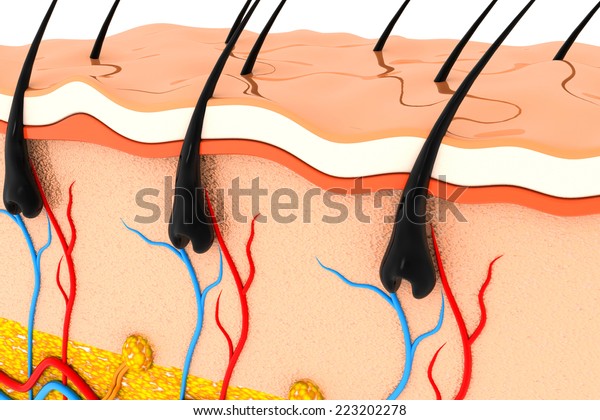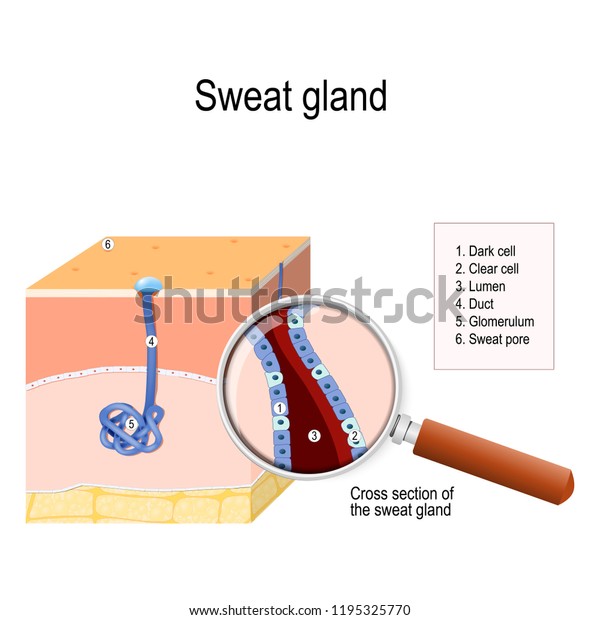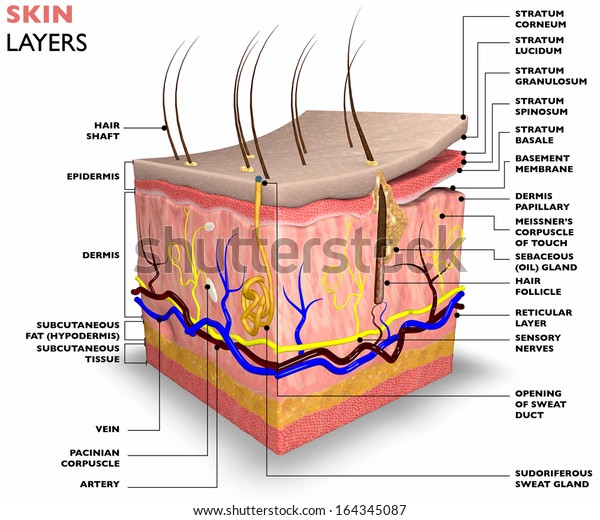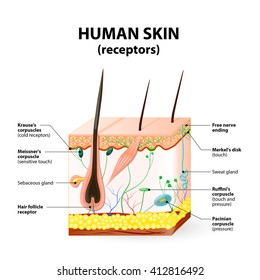SKIN,HAIR,AND NAILS
Skin is the body's protective overcoat, forming a barrier between vulnerable body tissues and the harsh, changing condition of the outside world. It prevents water loss, blocks invasion by germs, repairs itself when damaged, helps us keep warm, and enables us to sense our surrounding. The uppermost layer of the skin is made from dead cells filled with a tough, waterproof substance called keratin. Hair and nails, both derived from skin,are also made from dead,keratin-filled cells.
1.SKIN CROSS-SECTION
A section through the skin reveals that it has two parts. The epidermis is a germ-proof, waterproof barrier that protects against harmful rays in sunlight . the thicker dermis contains blood vessels, sensory receptors,and sweat glands.
2. SWEAT
This is salty liquid is produced by sweat glands in the demis. In hot conditions, sweat is released onto the skin's surface. It then evaporates, cooling the body and helping to maintain a constant body temperature of 37 degree celsius (98 degree farahnite).
3. SKIN COLOUR
Special cells in the epidermis produce the brown pigment melanin, which filters out harmful ultraviolet rays from sunlight before they can damage skin cells.
4. FINGERNAIL
Ideal for gripping objects and scratching itches, fingernails are clear plates that protects the sensitive upper parts of the fingertips.The cells that make nails die,flatten,and fill with keratin as they are pushed forwards from the nail's root.

5. HAIR
Millions of hairs grow from the skin covering most body areas.Scalp hairs protect the skin from sunlight and reduce heat loss. Finer, shorter body hairs sense the presence of insects on the skin before they can sting or bite us.
6. TOUCH RECEPTORS
The dermis contains a range of receptors that respond to soft touch, firmer pressure , and vibrations, and send signals to the brain so we can feel our surroundings.The dermis also has receptors that detect pain,heat,and cold.





No comments:
Post a Comment